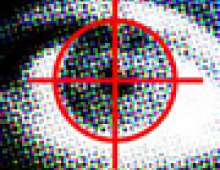
P2P Monitoring by French Rights Organisation
In April the French Data Protection Authority CNIL gave permission to the software lobbying organisation SELL to trace and monitor file exchanges on P2P networks. Now SELL's sister organisation for copyrights holders, SACEM, may obtain the same authorization.
SACEM will utilize the company Advestigo, which has asked CNIL for permission to collect
IP addresses and send warning messages to file-sharers.
Both up- and downloaders will be traced and receive an automatic message warn them about the illegal character of their deeds.
If these users carry on with their downloading activities SACEM may ask a judge to make their ISP end their subscription. After that the SACEM may lodge a claim against the file-sharers with the authorities, that could lead to prosecution.
All this is neither novel nor surprising. In France SELL has precedented SACEM. In Sweden the Data Protection Board decided that the national anti-piracy organisation violated data protection laws by collecting IP addresses, but also pointed out that private organisations can apply to be exempted from the data act.
Dutch anti-piracy organisation BREIN already collects IP addresses and sends warning messages to file-sharers. Permission to commit such unlawfull deeds has led the first privacy obstacle to the second: obtaining identification behind the IP addresses. Finally there may be little privacy protection to overcome before reaching their goal: a lawsuit for copyright infringement.
For additional information visit http://constitutionalcode.blogspot.com.
Both up- and downloaders will be traced and receive an automatic message warn them about the illegal character of their deeds.
If these users carry on with their downloading activities SACEM may ask a judge to make their ISP end their subscription. After that the SACEM may lodge a claim against the file-sharers with the authorities, that could lead to prosecution.
All this is neither novel nor surprising. In France SELL has precedented SACEM. In Sweden the Data Protection Board decided that the national anti-piracy organisation violated data protection laws by collecting IP addresses, but also pointed out that private organisations can apply to be exempted from the data act.
Dutch anti-piracy organisation BREIN already collects IP addresses and sends warning messages to file-sharers. Permission to commit such unlawfull deeds has led the first privacy obstacle to the second: obtaining identification behind the IP addresses. Finally there may be little privacy protection to overcome before reaching their goal: a lawsuit for copyright infringement.
For additional information visit http://constitutionalcode.blogspot.com.




















